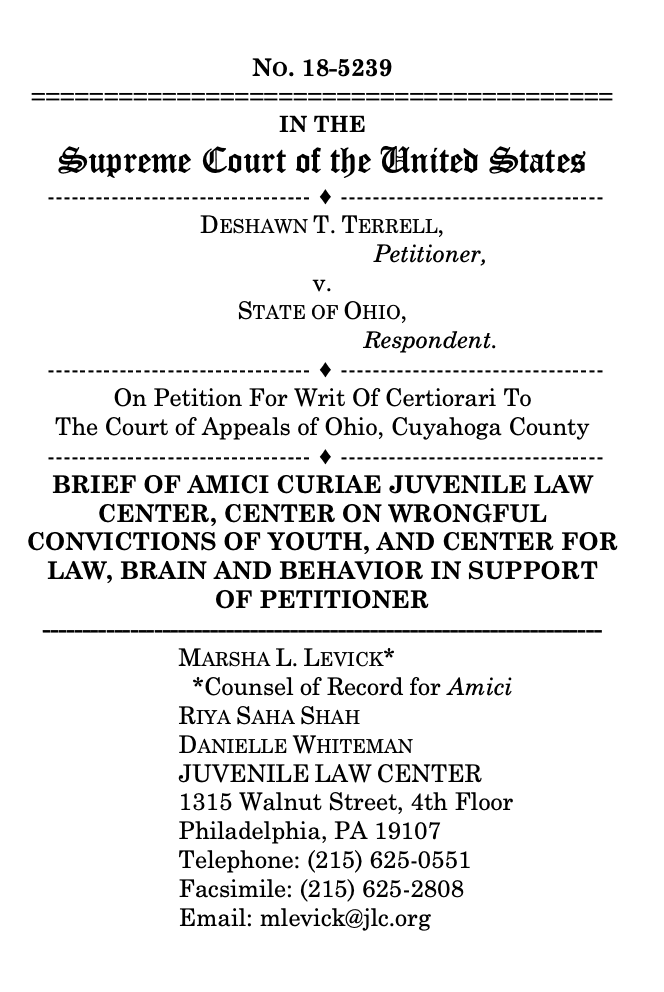
Summary of Argument
Deshawn Terrell was convicted of one count of murder with a three-year firearm specification and one count of aggravated robbery arising from a robbery he was involved in when he was seventeen years old. Mr. Terrell received a sentence of 21 years to life, including a mandatory sentence of 15 to life arising from the murder conviction. There is no evidence that demonstrates Mr. Terrell killed or intended to kill the victim: in fact, video evidence showed that he ran outside before his co-defendant shot the victim. This case raises fundamental questions about the fairness of sentencing juveniles to harsh and lengthy sentences under theories of imputed or transferred intent in light of the developmental and neuroscientific findings that led this Court to determine that juvenile offenders are less culpable than their adult counterparts. The impropriety of Mr. Terrell’s sentence is further magnified because it was imposed due to a mandatory prosecution in the adult court, which led to a mandatory sentence. This sentencing scheme precluded the sentencing court from giving any weight to Mr. Terrell’s youth or diminished culpability, as required by this Court.
Amici support Mr. Terrell’s principal argument that any mandatory sentence imposed on a young person is unconstitutional if the defendant is not afforded the protections set forth by this Court in Miller v. Alabama. Amici write separately to underscore Mr. Terrell’s assertion that juveniles must not be sentenced to lengthy or life terms under a conviction for felony murder. We urge this court to remand this case because evidence, rooted in law and science, demonstrates that young people should not be held liable under the theory of felony murder.